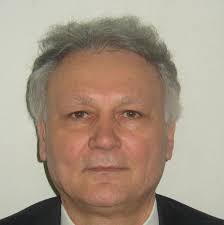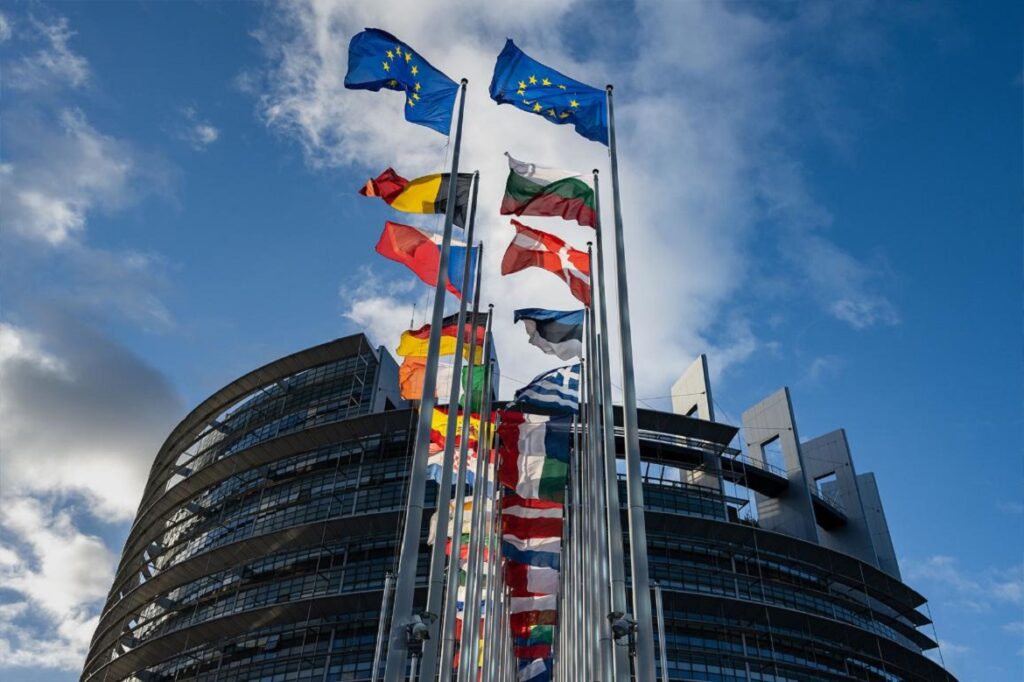Word Geostrategic insights Interview with Massimo Ortolani on how the current geopolitical turmoil will affect the agenda of the new EU Parliament, especially with regard to the issues of tariff enforcement, security, and European autonomous defense strategy.

Massimo Ortolani is a professor, economist, international consultant and analyst on geoeconomic events and artificial intelligence technology revolution. He advises on how to assess risks and opportunities arising from cross-border investments/exports and the actions and tools to take to mitigate the risks. He is author of the book “Economic Intelligence and Geoeconomic Conflict”.
Q1 – In what prospective ways will the new directions of the EU electorate, and the evolution of current geostrategic conflicts, impact the agenda of the new EU Parliament?
A1 – The uncertainties to which geopolitical and geoeconomic scenarios have long accustomed us will certainly be reflected in the content of the EU agenda, and timing of decision-making, due to the composition of the diverse views of the parties in the new majority. But, what needs to be emphasized is that, regardless of the composition of the latter, in order to continue to effectively pursue the strategic goals of the EU agenda it will have to embrace a greater versatility of policy formulas than in the past. And not only for reasons of operational pragmatism, i.e., to be able to measure itself against a vision of EU Europe that is more closely aligned with the needs underlying the voting preferences, but above all to put its hand to certain fundamental areas of geopolitics and geoeconomics that were not fully answered by the previous Ursula majority.
The reference is to two interrelated analytical areas on the geostrategic level for the EU: unfair trade, and security for strategic autonomy (note: the capacity of the EU to act autonomously – that is, without being dependent on other countries). If we consider, for example, the time acceleration imposed for the establishment of temporary tariffs on Chinese electric vehicles before the expiration of the legislature, it is immediate to raise some observations:
– These tariffs will provide a formidable incentive to locate Chinese electric car assembly plants in the EU, in the absence of a competing schedule of tariffs on components to be imported from China. With presumably recourse to state incentives by member states competing in attracting such assembly centers to their territory.
-Therefore, it would be desirable that the assessments for differentiating the measures applying to temporary duties before their conversion into definitive onces – fundamentally dependent on the level of info and possible objections receivable by the sample of Chinese producers examined – be corroborated by cost-benefit analyses on the advantages, in terms of added value, associated, with the activation of a prospective demand for assembly in the EU.
-It is well known that, prior to such conversion, this choice will be put to a non-binding vote of the member countries, which appear already divided on the appropriateness of the “application” of such tariffs. And this also in view of the industrial policy impacts, subject of critical comments raised by well-known European brands intending to build electric vehicles in the EU, or to import their vehicles produced in China.
– While the geopolitical and geoeconomic impact related to plausible Chinese retaliation is also to be assessed. Beijing will most likely appeal to the WTO, as it has already done against the implementation of financial aid under the U.S. Inflation Reduction ACT program. In order to keep the prospective effects to a minimum, the top leadership of the entire institutional staff of the EU should engage in complex and delicate intelligence and economic diplomacy interventions, in order to prevent the triggering of a trade war from damagingly chilling the entire complex of economic relations with the Dragon. Relations that are already suffering from the slow pace with which the approval of the Comprehensive Agreement on Investment is dragging on. Instead, it deserves to add that as a result of the ongoing “economic war” with Beijing. The US, after the huge duties on Chinese motor vehicle imports, is considering conspicuous duty increases even on the import of strategic components of electric car engines, such as batteries, that appear to be also a de facto Chinese near-monopoly.
Q2 – Would it then have been preferable for the EU to alternatively apply tariffs that are transparently proportionate with WTO rules?
A2 – If WTO member nations have not appealed in the past against China’s known government aid measures, underlying even overcapacity in certain sectors, it is because – in the context of a geo-economic cost-benefit analysis – the criterion of non-interference on a country that was effectively contributing to low-cost production, of even capital goods, continued to prevail among many economic powers (from the EU to the US).
Instead, when the evolution of geopolitical and economic events gave strategic priority to the criterion of security and independence, the relationship with Beijing became colder and more detached. But it should be emphasized that this is only one aspect of the more intriguing issue of tariff determination under the free trade treaties (FTAs) that the EU is now called upon to sign with various foreign nations, without having an apparent “political approval” that is widely shared both internally and externally.
At regard, a specific concern should be made to underscore to the continuous widening – over time – of allocative efficiency indicators of benefit to be associated with reduced or zero tariffs. In the case of the Mercosur treaty, for example, commitments to which South American counterparts will also have to comply include: sustainable management of agriculture, forest conservation, respect for workers’ rights and the promotion of responsible business conduct.
These are all laudable goals in themselves but – as of 2019 – have so far prevented the treaty from entering into force. Problems to which are added to others, such as that of the feasibility of effective monitoring of partners’ compliance with commitments and, above all, that, much broader in content, related to the request by an European farmers’ associations to impose reciprocity of commitments in FTAs. That is, that food products from non-EU countries must meet the same standards as those imposed by the Union on its own producers. (!?)
Q3 – Is it possible that some of the strong indications emerged from the recent G7 on security issues may be part of the geopolitical agenda of the new EU majority as well?
A3 – Certainly the G7 members’ signing of the medium- to long-term financing commitments of USD 50 BILLION for economic support of Kiev reinforces in perspective the sharing of a similar commitment represented by the Ukraine Facility. The EU’s €50 billion financing facility, aimed at helping Kiev, for the period 24-27, in its recovery, reconstruction and modernization efforts. Although it is with Ukraine’s planned accession to the Union that a qualitative leap forward in European defense could be achieved, once member countries agree to develop tools to gradually improve ways to adequately meet the goals for shared military defence of their border.
Also of importance in this regard is the fact that the guarantee on the repayment of the financing to be activated on the proceeds of frozen Russian funds could include the participation of other non-G7 countries, as well as supranational financial bodies. Moreover, with the EU interventions in the context of the Global Gateway (GG) and PGII (note: The Partnership for Global Infrastructure and Investment of the Group of Seven) in favor of nations-not only African-of the so-called globalized South, the EU demonstrates that it wants to be an active part of this process of opening up and transforming the governance of the Planet. So that it could stand alongside Multilateral Development Banks – in financing in GG and PGII projects – with a view to greater efficiency, and in order to respond also to the objections in this regard raised by the BRICS group of countries.
Emerging in the watermark is the EU’s design to commit itself geo economically to the improvement of a more incisive multi-polar system of international relations, that can also satisfy the desires of nations which, while not wishing to bind themselves to a bipolar perspective, aim to show themselves multi-aligned on specific initiatives.
Q4 – On the subject of security and strategic autonomy, what additional areas do you think could become the subject of regulatory intervention by the new EU Parliament?
A4 – It would be excessive to dwell punctually on listing such issues. Instead, it is easier to identify the criteria according to which Brussels should take action to complete interventions that, in various areas, would indirectly contribute to generating greater economic security and strategic autonomy. The thorny issue of building the European army is left out for the moment, in the absence of a fully agreeable EU foreign policy that would make public spending more socially acceptable, on the basis of a full share of the values that inspired the response to Russia’s violation of international law.
An area in which the EU plays a strategic role with non-military tools, is the one of sanctions, regretfully limited in scope compared to expectations. The EU relies heavily on regulatory enactment, but what reality is showing is that, without a suitable economic intelligence system aimed at finding and processing info, the regulatory effort can be easily circumvented by contractual and financial triangulations.
Being able to rely with greater operational intensity on economic intelligence applications would also serve to define the perimeter of strategic sectors capable of making the EU less and less geopolitically dependent on the aims of potential geopolitical adversaries, as in autonomy in the production of specific categories of drugs. Likewise, in the strengthening of a strategic market such as energy, which should be pursued aiming at setting up a single energy market; and therefore going far beyond the implementation of the Action Plan for Grids for power lines.
And then the area of finance. It is still unsatisfactory, in fact, the degree of capital market integration, because of the potential for economic expansion and indirect financial defense that such an integration would offer. On the subject, the governor of the Bank of Italy said in the final remarks of annual report, “Given the central role of banks in all segments of the capital market, it is difficult to imagine an integrated market if they cannot operate effectively throughout the euro area. The introduction of a European risk-free bond and the completion of the banking union are preconditions for creating a single capital market...”
Massimo Ortolani – Professor, economist, international consultant and analyst.
Image Source: European Parliament Website







